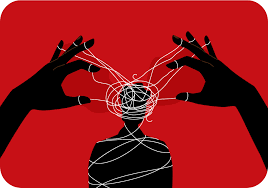Title: The Cognitive Cost of Chronic Stress: How Long-Term Pressure Rewires the Human Brain
Author Name: Farhat Abbas
Introduction
Stress is a natural occurrence. Briefly, it creates focus, energizes, and readies the body for rapid response. But when stress turns chronic—weeks, months, or years of continuous pressure—it quietly destroys one of our most precious resources: our intellectual capacity.
Chronic stress doesn’t only impact the body; it changes the shape and operation of the brain. From memory loss to decision exhaustion, extended stress undermines how we think, learn, remember, and react. In today’s world, where every day speeds by, being aware of this silent threat is more important than ever before.
What Is Chronic Stress?
Chronic stress is a state of psychological tension that lasts over an extended period due to ongoing challenges or perceived threats—like financial struggle, toxic relationships, work overwhelm, or unresolved trauma. In contrast to acute stress, which is short-term, chronic stress leaves the brain and body in a state of continuous alert, causing physical and mental fatigue.
1. Hippocampus – Memory and Learning Center
The hippocampus is key to creating new memories and recalling old ones. Stress induces high levels of cortisol, the stress hormone in the body, which can decrease the size of the hippocampus with time.
Effects :
Forgetfulness
Difficulty in concentrating
Compromised ability to learn
2. Prefrontal Cortex – Decision Making and Concentration
The prefrontal cortex coordinates higher-order thinking, including reasoning, planning, and impulse control. Chronic stress suppresses activity and communication within this region.
Effects :
Poor decision-making
Impulsivity
Inability to concentrate or think clearly under stress
3. Amygdala – Emotional Processing
The amygdala is responsible for sensing danger and controlling fear reactions. During chronic stress, it becomes enlarged and hyperactive, amplifying emotional reactivity and anxiety.
Effects :
Increased fear and irritability
Intensified emotional reactions
Challenge in controlling mood
How Chronic Stress Affects Core Cognitive Processes
1. Attention and Concentration
Stress diminishes the brain’s capacity to filter out distractions. “Mental fog” lowers efficiency, raises error rates, and creates a constant feeling of being overwhelmed.
2. Working Memory
Working memory—the capacity to keep and juggle information temporarily—is particularly vulnerable to cortisol. Ongoing stress interferes with this function, making problem-solving or juggling multiple tasks more difficult.
3. Cognitive Flexibility
The ability to think flexibly permits people to handle change, view problems from several aspects, and innovate. Chronic stress constricts perspective and hardens patterns of thinking into black-and-white thinking and inflexibility.
4. Language and Verbal Recall
Individuals under chronic stress tend to experience difficulties with word-finding, slowing of speech processing, or losing their train of thought. This is because both memory systems are impaired and emotional interference.
The Vicious Cycle: Stress Leads to More Stress
The chronic stress-induced cognitive impairments can create more errors, conflicts, and feelings of failure, which in turn generate more stress. This cycle becomes self-reinforcing, reinforcing burnout, anxiety, and even depression if allowed to proceed unchecked.
Can the Brain Recover?
Yes—with Intervention
Fortunately, the brain possesses neuroplasticity—its capacity to change and heal. Through deliberate care, much of the intellectual damage induced by stress can be undone.
Recovery Strategies :
Mindfulness & Meditation
Decreases amygdala action and enhances prefrontal cortex
Sleep Hygiene
Restores cognitive functioning and flushes cortisol accumulation
Physical Exercise
Enhances brain-derived neurotrophic factor (BDNF) that aids memory and learning
Therapeutic Care
Cognitive Behavioral Therapy (CBT), EMDR, or psychoanalysis can assist in reframing stress triggers and facilitating healing
Nutritional Support
Omega-3 rich diets, antioxidants, and magnesium enhance brain health.


